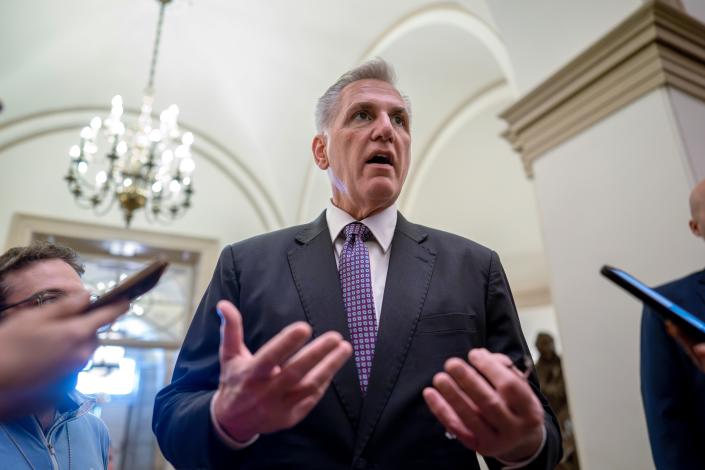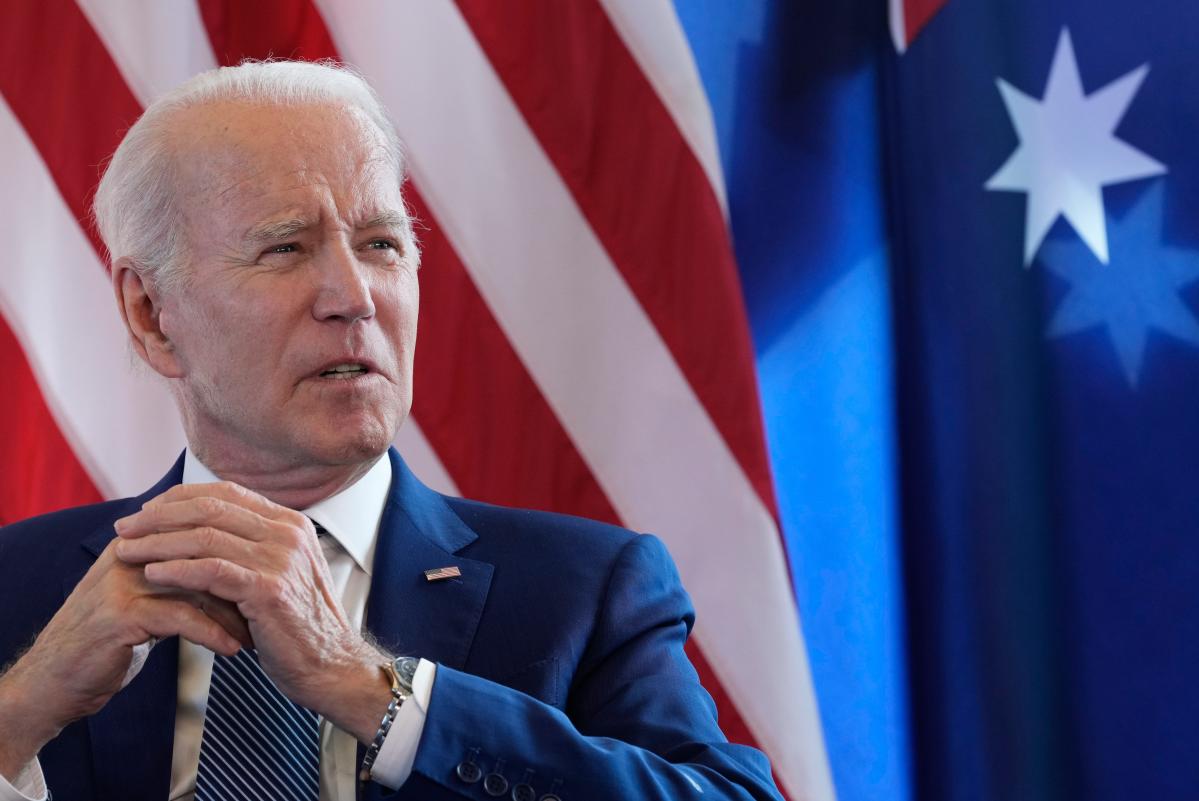WASHINGTON − President Joe Biden is ramping up his rhetoric in the debt-ceiling fight, seeking to wrestle back control of negotiations that have been dominated by Republicans’ push for spending cuts.
Biden, who has gotten pushback from progressive Democrats for entertaining GOP proposals like expanded work requirements and spending caps, on Sunday demanded that Republicans move away from their “extreme positions because much of what they’ve already proposed is simply, quite frankly, unacceptable.”
It marked a shift from a more conciliatory tone as Biden goes mano-a-mano with House Speaker Kevin McCarthy in a one-on-one White House meeting Monday afternoon, 10 days from a June 1 deadline for a default unless the debt ceiling is raised.
Inside debt ceiling negotiations
Ahead of the meeting between Biden and McCarthy, White House and Republican negotiators met at the Capitol after talks crumbled over the weekend.
-
Over the months-long impasse, talks have centered on what Republicans want: stricter work requirements for recipients of food stamps and other welfare benefits, annual caps on future discretionary spending, expedited permitting for oil and gas projects and rescinding COVID-19 funds. The White House has been open to components of each, but won’t go as far as Republicans want.
-
This past weekend, Republicans proposed a new cut to the Supplemental Nutrition Assistance Program, according to a White House official who discussed talks on the condition of anonymity. Republicans have also insisted on 10 years of annual spending caps, while the White House will only agree to two years.
-
The White House is now trying to flip the debate by pushing a key piece of the Democratic agenda: Tax increases on the wealthiest Americans and corporations by not renewing tax cuts passed under the Trump administration in 2017.
-
Biden said the White House put forward a proposal that includes $1 trillion in spending cuts, but as part of the same proposal, Democrats want the tax overhaul. Republicans have balked.
-
In a new proposal over the weekend, Republicans also called for an increase to defense spending, which the White House said would result in further cuts to domestic programs in education and health care.
Biden’s standoff with McCarthy tests pledge to unite
Biden entered the White House more than two years ago promising to put aside differences to work with Republicans to show that Washington can govern again.
Whether he can strike a deal with McCarthy is a major test whether Biden can unite even in the most partisan of times.
It will be no easy feat to find common ground with a party dominated by what Biden has labeled “extreme MAGA Republicans,” whose motives the president has questioned.
“I can’t guarantee that they wouldn’t force a default by doing something outrageous,” Biden said of “MAGA Republicans” in Congress, later accusing them of trying to benefit politically from the economic devastation of a default.
“Because I am president, and a president is responsible for everything, Biden would take the blame and that’s the one way to make sure Biden’s not reelected,” he said.
Still, Biden pointed to commitments from McCarthy and Senate Minority Leader Mitch McConnell that the U.S. won’t default. “I’m assuming that we mean what we say, and we’ll figure out a way to not have to default.”

14th Amendment: Biden believes he has authority to bypass Congress
McCarthy, appearing on Fox News’ “Sunday Morning Futures,” slammed Biden’s budget proposal for spending “more than the height of the pandemic.” He told reporters Monday that Republicans want to “spend less than we did last year.”
“We just can’t afford to keep borrowing from China and be more dependent and create more inflation,” McCarthy said.
The wild card in debt-ceiling talks is Biden’s consideration of invoking the 14th Amendment, which says “the validity of the public debt of the United States … shall not be questioned.”
Biden went further than he’s gone before Sunday by saying flatly that he believes the 14th Amendment gives him the authority to bypass Congress and get around the debt ceiling, which sets a cap on the amount the U.S. can borrow.
Some constitutional law experts argue Biden should challenge the legality of the debt limit based on the 14th Amendment by having the Treasury continue to issue new debt to fulfill its financial obligations.
“I think we have the authority,” Biden said of bypassing Congress through the 14th Amendment. But he raised concerns that such a move could withstand potential litigation by the the June 1 default deadline. “The question is: Could it be done and invoked in time?”
Reach Joey Garrison on Twitter @joeygarrison.
This article originally appeared on USA TODAY: Biden tries to wrestle control of debt ceiling talks dominated by GOP







